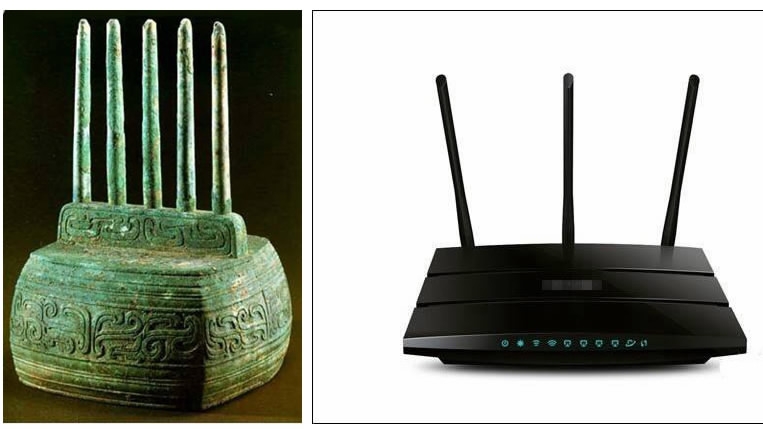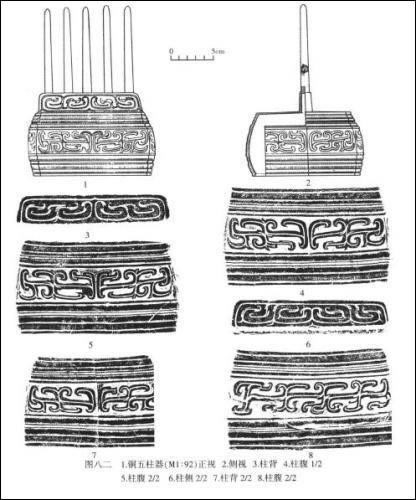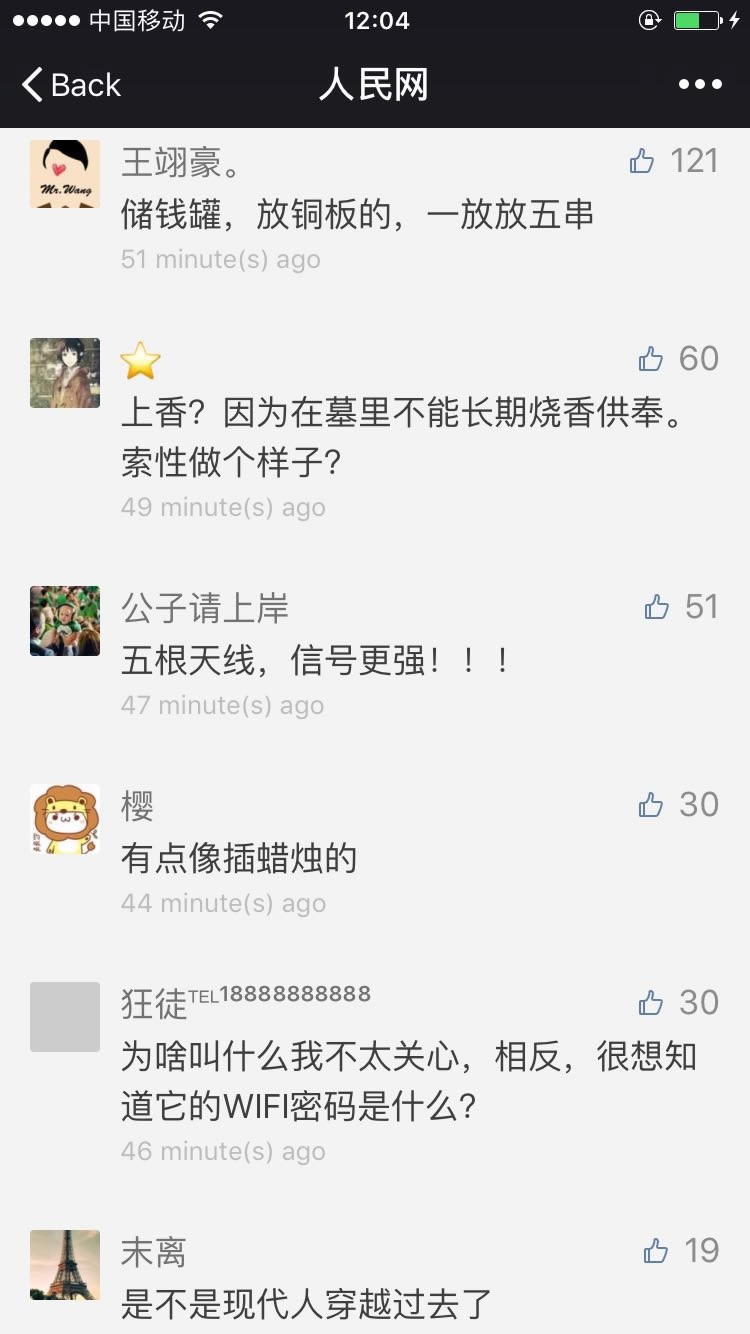
Culture
15:01, 04-Jan-2018
Cultural relics puzzle academics, ignite public imagination
CGTN

Two unidentified items of ancient bronze ware have triggered a whirlwind of reactions among Chinese Internet users because of their unique shape.
With five 16-centimeter-tall poles erected above a rectangle base, the objects were unearthed among a large number of cultural relics in east China’s Anhui Province in March 1959.

Screenshot from Anhui Museum website
Screenshot from Anhui Museum website
Archaeologists were able to identify all the other objects discovered but remain puzzled by the two items. Believed to be have been made in the West Zhou Dynasty some 2, 000 years ago, the relic was not recorded in any books since Northern Song Dynasty (960-1127).
Some assume they are musical instruments, but no related objects were found in the same batch of relics.
Others say they may play a role in adjusting tones since five poles sound differently when struck.

Photo from China News Service
Photo from China News Service
Li Yizhi, deputy curator of Anhui Museum where the unidentified relic is now kept, told China News Service that the function is yet to be defined.
“Many experts have studied the object, but there is no accurate proof so far," Li said. "Some say it is a basement for an object, without any details. It is under academic argument whether it was used for ancestral worship.”
However, there is no limit to the imagination of Chinese netizens, who have fervently given their own speculative views of past use.

Screenshot from comments on WeChat
Screenshot from comments on WeChat
On China’s leading social media platform WeChat, user @Wang Yihao said, “It is a penny bank. People put coins on the five poles to collect money.”
@Star asked, “Is it to put scent to worship ancestors?”
@Gongziqingshangan said, “Five wires, better signal!”
@Ying said, “It looks like to put candles on.”
@Kuangtu said, “I don’t care how it is named. I am curious to know its wifi password.”
@Moli said, “Did people from the modern world time-travel to the past?”
So what do you think this object was used for?

SITEMAP
Copyright © 2018 CGTN. Beijing ICP prepared NO.16065310-3
Copyright © 2018 CGTN. Beijing ICP prepared NO.16065310-3